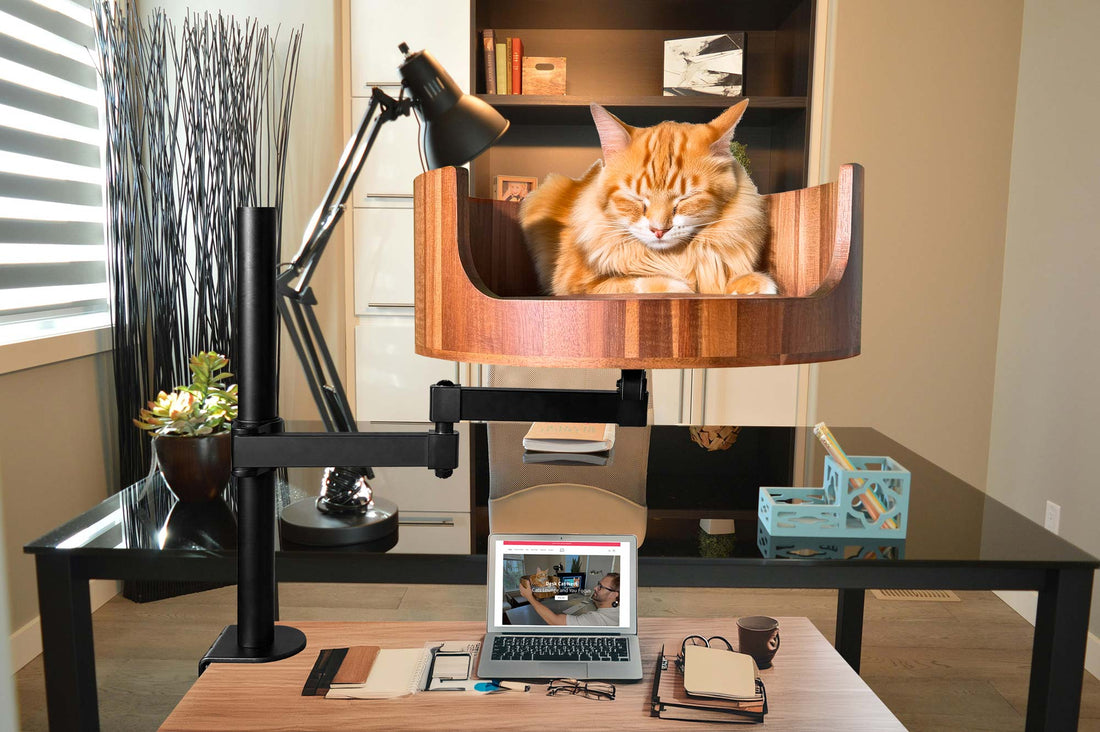
Why is my cat yowling: Understanding Feline Behavior
Share
If you have ever found yourself perplexed by your cat's loud, persistent yowling, you are not alone. Cats are known for their quiet and mysterious nature, so when they suddenly start yowling, it can be quite alarming. In this article, we will delve into the reasons behind your cat's yowling behavior and help you understand what your feline friend is trying to communicate.
From stress and anxiety to medical issues and attention-seeking behavior, there are a variety of reasons why your cat may be yowling. By understanding the underlying causes of this behavior, you can better address your cat's needs and ensure their well-being. We will explore common triggers of yowling in cats and provide tips on how to alleviate their distress. Additionally, we will discuss the importance of environmental enrichment and mental stimulation for your cat's overall happiness and behavior. By the end of this article, you will have a better understanding of why your cat is yowling and how to effectively manage this behavior.
1. Cats yowl to communicate their needs, such as hunger, loneliness, or anxiety. Understanding these signals can help improve their overall well-being.
2. Environmental factors, such as changes in routine or new stimuli, can trigger excessive yowling in cats.
3. Providing mental and physical stimulation, along with a comfortable resting space like a desk cat nest, can help reduce excessive yowling behavior.
4. Regular veterinary check-ups are important to rule out any underlying medical issues that could be causing your cat to yowl.
5. Patience, consistency, and positive reinforcement are key in addressing and modifying your cat's yowling behavior.
Reasons for Cat Yowling
There are several reasons why your cat may be yowling. One common reason is attention seeking behavior. Cats are known for their vocalization when they want attention from their owners. They may yowl when they are hungry, bored, or seeking affection. Another reason could be related to mating behavior. Unspayed female cats may yowl when they are in heat, as a way to attract male cats. Male cats may also yowl to signal their availability for mating. Medical issues can also cause yowling in cats. Pain, anxiety, or discomfort can lead to excessive vocalization in cats.
Managing Cat Yowling
To address your cat's yowling behavior, it's important to identify the underlying cause. If your cat is yowling for attention, try spending more quality time with them, playing with interactive toys, or providing environmental enrichment. If your cat is yowling due to mating behavior, consider spaying or neutering them to reduce the vocalizations. In cases of medical issues, consult with your veterinarian to rule out any underlying health concerns. In some cases, behavior modification techniques or medication may be necessary to help manage excessive yowling in cats.
Case Study: Desk Cat Nest
One common scenario where cat yowling may occur is when a cat has claimed a specific spot as their own, such as a desk or a cozy nook. Cats are territorial animals, and they may yowl to defend their space or to express discomfort when someone intrudes on their territory. For example, if a cat has claimed a desk as their favorite napping spot, they may yowl when someone tries to use the desk, disrupting their sense of security and ownership. Understanding your cat's need for personal space and providing them with alternative spots to rest or play can help reduce yowling behavior in these situations.
Desk Cat Nest - FAQ
Q: Why is my cat yowling?
Yowling in cats can be caused by a variety of reasons, including attention-seeking behavior, medical issues, territorial disputes, or simply a desire for food or water. It's important to observe your cat's behavior and consult with a veterinarian to rule out any underlying health concerns.
Q: Will the Desk Cat Nest help with my cat's yowling?
The Desk Cat Nest provides a cozy and comfortable space for your cat to relax and feel secure, which can help reduce stress and anxiety that may be contributing to yowling behavior. However, it is not a guaranteed solution and may not address all underlying causes of yowling in cats.
Q: How can I introduce my cat to the Desk Cat Nest?
Start by placing the Desk Cat Nest in a quiet and familiar area where your cat likes to spend time. Encourage your cat to explore the nest by placing treats or toys inside. Be patient and allow your cat to acclimate to the nest at their own pace.
Q: Can the Desk Cat Nest be used for multiple cats?
The Desk Cat Nest is designed to accommodate one cat comfortably. However, some cats may be willing to share the space peacefully. Monitor your cats' behavior closely to ensure they are not feeling stressed or territorial over the nest.
Q: Is the Desk Cat Nest easy to clean?
Yes, the Desk Cat Nest is made with materials that are easy to wipe down and keep clean. We recommend regularly cleaning the nest with a pet-safe disinfectant to maintain a hygienic environment for your cat.
In conclusion, the Desk Cat Bed is a valuable choice for addressing the issue of why your cat is yowling. By providing a cozy and secure space for your feline friend to rest and relax, this product can help reduce stress and anxiety which may be causing the excessive vocalization. With its durable and comfortable design, the Desk Cat Bed offers multiple benefits including improved sleep quality, reduced yowling behavior, and a happier, more content cat. Investing in a Desk Cat Bed is a practical solution to help address the root cause of your cat's yowling and create a harmonious living environment for both you and your beloved pet.



















































